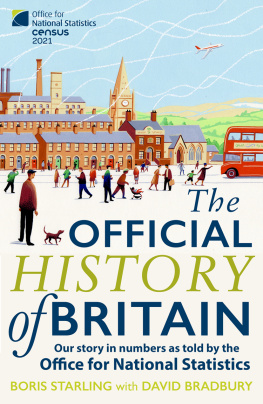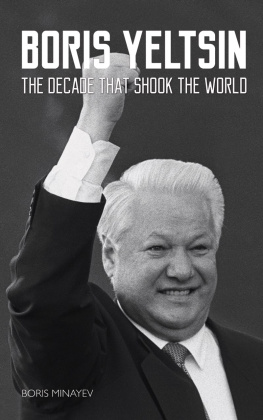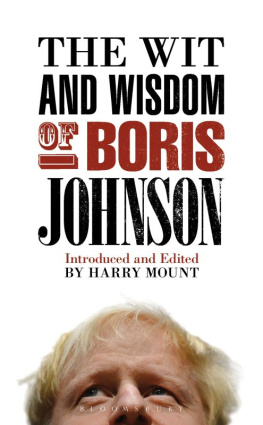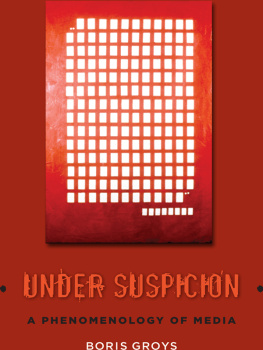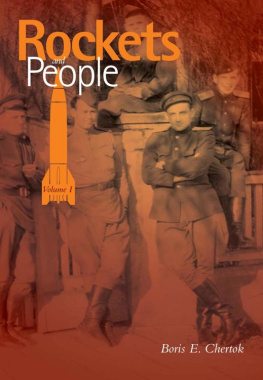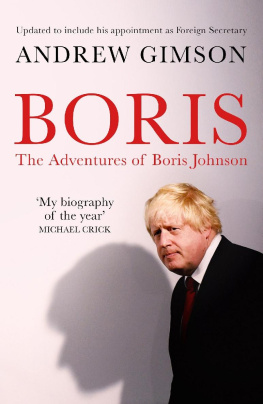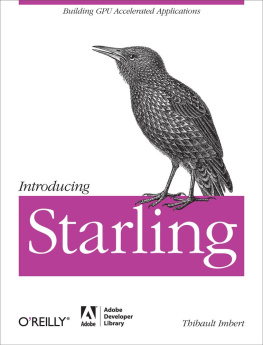Boris Starling - The Official History of Britain
Here you can read online Boris Starling - The Official History of Britain full text of the book (entire story) in english for free. Download pdf and epub, get meaning, cover and reviews about this ebook. year: 2020, publisher: HarperCollins Publishers, genre: Politics. Description of the work, (preface) as well as reviews are available. Best literature library LitArk.com created for fans of good reading and offers a wide selection of genres:
Romance novel
Science fiction
Adventure
Detective
Science
History
Home and family
Prose
Art
Politics
Computer
Non-fiction
Religion
Business
Children
Humor
Choose a favorite category and find really read worthwhile books. Enjoy immersion in the world of imagination, feel the emotions of the characters or learn something new for yourself, make an fascinating discovery.
- Book:The Official History of Britain
- Author:
- Publisher:HarperCollins Publishers
- Genre:
- Year:2020
- Rating:3 / 5
- Favourites:Add to favourites
- Your mark:
- 60
- 1
- 2
- 3
- 4
- 5
The Official History of Britain: summary, description and annotation
We offer to read an annotation, description, summary or preface (depends on what the author of the book "The Official History of Britain" wrote himself). If you haven't found the necessary information about the book — write in the comments, we will try to find it.
The Official History of Britain — read online for free the complete book (whole text) full work
Below is the text of the book, divided by pages. System saving the place of the last page read, allows you to conveniently read the book "The Official History of Britain" online for free, without having to search again every time where you left off. Put a bookmark, and you can go to the page where you finished reading at any time.
Font size:
Interval:
Bookmark:

HarperCollinsPublishers
1 London Bridge Street
London SE1 9GF
www.harpercollins.co.uk
First published by HarperCollinsPublishers 2020
FIRST EDITION
Text Crown Copyright 2020
Illustrations by Liane Payne HarperCollinsPublishers Ltd 2020
Cover layout design by Claire Ward HarperCollinsPublishers Ltd 2020
Cover illustration Neil Gower
A catalogue record of this book is available from the British Library
The Office for National Statistics asserts the moral right to be identified as the author of this work
All rights reserved under International and Pan-American Copyright Conventions. By payment of the required fees, you have been granted the nonexclusive, non-transferable right to access and read the text of this e-book on screen. No part of this text may be reproduced, transmitted, downloaded, decompiled, reverse engineered, or stored in or introduced into any information storage retrieval system, in any form or by any means, whether electronic or mechanical, now known or hereinafter invented, without the express written permission of HarperCollins e-books.
Find out about HarperCollins and the environment at
www.harpercollins.co.uk/green
Source ISBN: 9780008412197
Ebook Edition October 2020 ISBN: 9780008412203
Version: 2020-09-23
by Professor Sir Ian Diamond, UK National Statistician
The great scientist Lord Kelvin once said that if you cannot measure it, you cannot improve it. Britain has a long tradition of measuring things about the life of the country with a view to improving them. True, William the Conqueror commissioned the Domesday Book to tax his realm rather than improve it, but in a year when coronavirus has sadly turned the spotlight on the weekly deaths figures produced by the Office for National Statistics as never before, its worth remembering that the tradition of regular reporting of deaths by cause goes back to late Tudor times. Then, the Bills of Mortality for London were compiled from the returns sent in each week by the clerk of each parish in the city, which was vital knowledge to monitor when bubonic plague was a recurrent threat. The nineteenth century saw great strides in official data the census to monitor whether the population was growing or shrinking, and registration of births and deaths to provide comprehensive national data. Florence Nightingale, as well as championing professional standards in nursing, was also a pioneer in the presentation of statistics and became the first woman member of the Royal Statistical Society. Dr John Snow famously used meticulous record-keeping to establish that cholera, the great scourge of Victorian London, was transmitted by infected water, not foul air. And Charles Babbage, generally remembered for his unsuccessful attempts to build a mechanical computer, is also credited with devising the pre-printed survey form. In the twentieth century, the Second World War highlighted the need for reliable statistics to enable the countrys leadership to make key decisions. Thus, as this book points out, Winston Churchill, complaining that the utmost confusion is caused when people argue on different statistical data, ordered the establishment of the Central Statistical Office, one of the predecessor organisations of todays Office for National Statistics, to consolidate the efforts of other departments and issue final authoritative working statistics.
When my appointment as National Statistician was announced in August 2019, I said that I was looking forward to making use of rich new sources of information to deliver the data that decision-makers across the UK needed, as the ONS and the wider Government Statistical Service empowered Parliament, academia, business and beyond with trusted and quality data. However, I was little expecting that, within about six months of taking up my post here, the onset of a global pandemic would have created an unprecedented demand from within government, the media and the public as a whole for statistics that were both rapid and reliable regarding what was happening to the country. Im proud of how well my colleagues here have responded to that challenge. To give one example, the ONS, with its partners, set up the Virus Infection Survey, to gauge the prevalence of COVID-19 in the community, going from its announcement to first publication of results in barely three weeks. And so I was very gratified to hear that one of the countrys leading media commentators on statistics had said that one of the things the pandemic has taught us is the value of timely, accurate, trustworthy, comprehensive information and added that, in producing this new survey, we had done an impressive job in trying to get representative data on the prevalence of the infection. And this year has thrown up other instances of how weve responded developing new survey questions to measure how British business was responding to the economic challenges and how the population were responding to the various measures introduced to hinder the spread of the pandemic, speeding up the publication of some of our economic indicators, and so on.
What has happened this past year is something more or less unprecedented in living memory there has surely been nothing like this and on this scale since the Spanish flu outbreak over a hundred years ago now, Indeed, one of the recurring themes of this book is the dramatic effect that the two vast wars of the twentieth century had on the life of people in this country.
After a year none of us here at the ONS will easily forget, 2021 too promises to be an important year for us not only does it mark the twenty-fifth anniversary of our creation by the bringing together of the CSO with another government statistical department, the Office of Population Censuses and Surveys, its also time for the once-in-a-decade census, for which the ONS has responsibility in England and Wales (separate arrangements apply in Scotland where the census will take place in 2022 and Northern Ireland). This book makes much use of data from past censuses, as well as the other surveys and administrative data that the government collects, but the census process continues to evolve, as does the sort of topics we ask about. The 2021 census will, for the first time, be online-first, but of course you will still be able to reply in the previous way, by filling in a paper form, if you prefer. If, like me, you were intrigued by some of the snippets in this book (who knew that being a pedestrian could be an occupation as well as a means of getting about?), then I hope youll make sure that, if you live in England or Wales, come Sunday, 21 March 2021 Census Day you get your own census return in to us, whichever method you choose. By so doing, you are helping ensure that the country has the information it needs to target its resources more effectively and to plan services such as housing, education, health and transport. In the meantime, please sit back and enjoy Boris Starlings lively take on what official data past and present tell us about our nation, who we are, what we do and where we live. We official statisticians tend not be a showy bunch, but I hope readers will see from this story why we are quietly passionate about what we do and why, above all, it matters so much.
In 2011, the year of the most recent UK census, the film One Day was released. Based on a bestselling novel by David Nicholls, it told the story of its two protagonists, Emma and Dexter, through the neat structural conceit of visiting them on the same day every year for two decades. As such, the viewer saw Emma and Dexters lives through snapshots taken at regular intervals, with the changes in those lives signified at least partially through the regular markers humans use: where they were living, what they were doing, the status of their relationships, and so on.
Font size:
Interval:
Bookmark:
Similar books «The Official History of Britain»
Look at similar books to The Official History of Britain. We have selected literature similar in name and meaning in the hope of providing readers with more options to find new, interesting, not yet read works.
Discussion, reviews of the book The Official History of Britain and just readers' own opinions. Leave your comments, write what you think about the work, its meaning or the main characters. Specify what exactly you liked and what you didn't like, and why you think so.

